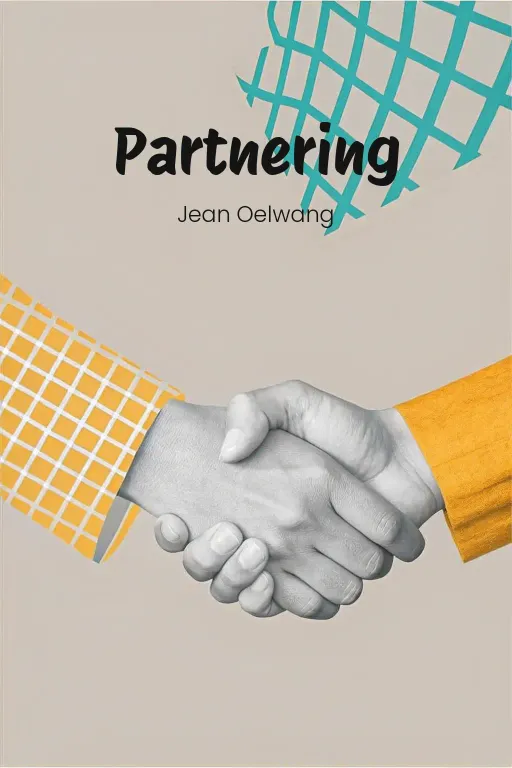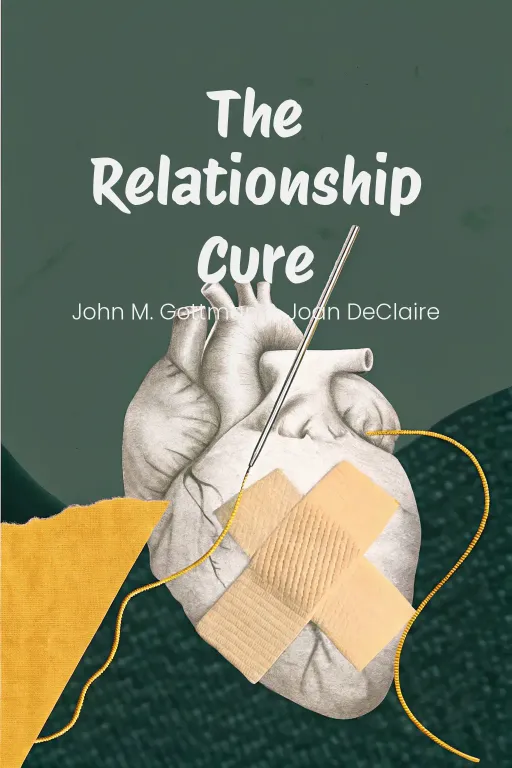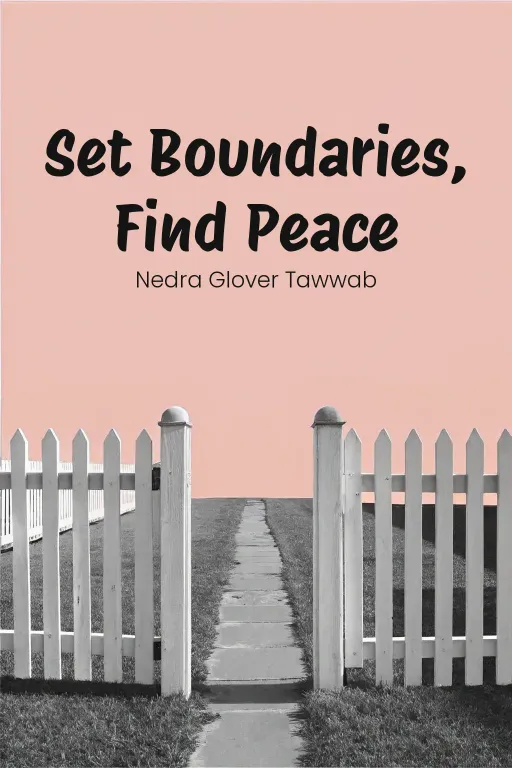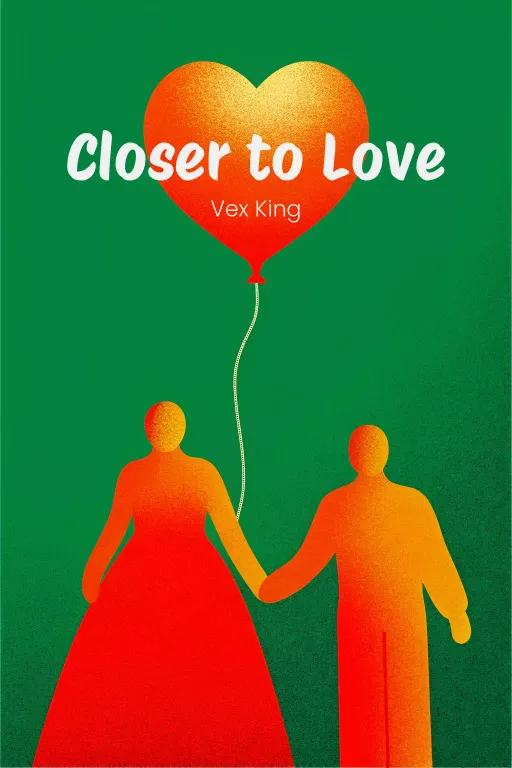
Fight Better: Build a Stronger Love
Podcast by Beta You with Alex and Michelle
Empowering Couples to Fight Smarter and Overcome Communication Pitfalls
Fight Better: Build a Stronger Love
Part 1
Alex: Hey everyone, welcome back! Today we're tackling a big one: conflict in relationships. I mean, who hasn’t felt totally drained or misunderstood after an argument? But what if those tough moments could actually lead to something better, like a deeper connection? Michelle: Exactly! Or, as the book we're discussing puts it, dealing with those “Argument Hangovers”—that lingering, awful feeling after a fight. And unlike a real hangover, you can't just chug some water and be done with it. So, how do you actually deal with it? That’s what we're diving into today, right? Alex: You nailed it, Michelle. We're looking closely at Jocelyn and Aaron Freeman's book, which is all about changing how we see and handle conflict. They want us to see these disagreements, not as failures, but as chances to build trust, get clarity, and deepen intimacy. The book really gets into it, covering everything from what sets us off emotionally to old ideas we have about love, and introduces practical tools like weekly check-ins and something they call the "5 R's." Michelle: Right, and heads-up, this isn't just another "communicate better" guide. The Freemans actually rethink what love is—not in some cheesy way—but as something based on kindness, empathy, and even personal freedom. Pretty big ideas, huh? Alex: Absolutely, which is why we're going to break it down into five key areas today. First, we'll talk about what conflict really is: where it comes from, how it affects us, and why we often handle it so poorly. Michelle: Next up, we get personal: emotional triggers. We're talking about how your partner can accidentally (or not so accidentally) push buttons that have been buried for ages. Alex: After that, we'll explore mastering communication. We mean tools and skills to stay calm, understand each other better, and actually make progress instead of just going around in circles. Michelle: Then we'll move on to practical stuff: setting up those weekly meetings, building a "love account," and turning structure into connection, instead of just scheduling your next fight. Alex: And finally, we'll look at how to redefine love, moving past the clichés to create a partnership that's fueled by empathy, joy, and, yes, freedom. Michelle: So basically, today's episode is your toolkit for turning relationship drama into teamwork. Let's jump in!
Understanding Conflict in Relationships
Part 2
Alex: Okay, Michelle, let's dive into the basics – understanding conflict in relationships. And, you know, we have to address the obvious: conflict isn't necessarily a bad thing. People often see it as something to avoid, but it's really just what happens when two people try to blend their lives, right? Michelle: Exactly! How could you not have conflict? You've got these two people, totally different backgrounds, beliefs, habits. What are the odds they'll agree on everything, all the time? Zero, basically. But here's the thing: most of us see conflict as a failure. Like, arguing means something's broken in the relationship. Alex: And that idea alone causes so much trouble. When couples think disagreements mean they're not compatible, they start avoiding them. But avoiding conflict doesn't make it disappear. It just hides it until it explodes, right? Michelle: Talk about explosions! Let's get into Jocelyn and Aaron Freeman's idea of the "Argument Hangover." I love that term because it perfectly describes how you feel after a fight. The fight's over, sure, but there's still tension hanging around. Alex: Right! They describe it as feeling emotionally drained, regretful, and sort of distant from your partner. They compare it to overeating at Thanksgiving—you feel good at first, but then you feel weighed down or even sick because of it. Michelle: And the worst part? That hangover doesn't just disappear. It affects your interactions later on. There was that couple from the Freemans' work who didn't deal with their issues for years. Small arguments at first, but they piled up until their daily conversations were a minefield. Alex: That's a powerful example. What stood out to me was how the husband felt emotionally tired from constantly trying to smooth things over, without actually addressing the real issues. And the wife felt resentful because her needs weren't being met. That's what happens when you ignore things – it damages trust and intimacy. Michelle: Right, Alex, but I can hear some listeners thinking, "Okay, that sounds good in theory, but when we're fighting, we're just trying to get through it! How can we possibly avoid this 'hangover'?" Alex: That's a great question. The Freemans suggest we need to rethink how we see conflict. Instead of a win-or-lose situation, it's feedback. What's this fight showing us about our unmet needs, our triggers, or the patterns we're stuck in? Michelle: Okay, let's get specific. Say you've blown up, and you're stuck in the argument hangover. How do you get out of it? What's the cure? Alex: Good question! The Freemans suggest making time to process what happened. Instead of just moving on like nothing happened, ask yourselves: What started this? Did anyone feel unheard? And, importantly, how can we stop this from happening again? Michelle: So, basically, take time to clean up the emotional mess instead of leaving it there to fester. I like that. But before we move on, let's talk about "picking your battles." It sounds good, but they say it's tricky. Alex: Oh, absolutely. On one hand, we don't need to fight over every little thing. But the risk is avoiding issues altogether. The Freemans compare it to pebbles in a backpack—each little frustration adds up until the weight is too much. Michelle: That analogy is great. It's not the backpack itself that's the problem, it's the little things that go unnoticed. There was a guy in the Freemans' study who avoided talking to his wife about canceling date nights, thinking it wasn't a big deal. But it built up, and when they fought about something else, it was like a volcano erupting. Alex: That's why addressing those "small" things early is so important. It's not about the dates themselves, is it? It's about feeling valued, prioritized, and respected. If couples talk about those feelings when they're still manageable, it prevents that explosion later on. Michelle: Right. But what about the opposite? You know, that "Happy wife, happy life" idea. It sounds nice, but it can “really” mess up a relationship. Alex: It definitely sets up this one-sided situation, where one person's happiness is the other's responsibility. And the person trying to "keep the peace" often gets neglected. In the long run, it is unsustainable. Michelle: And it backfires on the person you're trying to please. There was a husband who always did what his wife wanted, thinking he was being a good spouse. But he got frustrated and started pulling away emotionally. His wife felt disconnected and blamed him for not being more involved. Alex: That's a perfect example of how suppressing your own needs is dangerous. Real harmony comes from balance, where both people feel comfortable expressing their wants and concerns. Michelle: So, basically, avoiding conflict—whether by "picking battles" or ignoring your own needs—sets you up for bigger problems down the road. The lesson is to deal with disagreements early on, and to do it with curiosity and respect. Alex: Exactly. Which leads us to a key idea in their book: seeing conflict as growth. When you handle disagreements well, they become opportunities to understand yourself and your partner better. Instead of fearing conflict, we should see it as a normal part of a healthy relationship.
Emotional Triggers and Their Impact
Part 3
Alex: Understanding conflict's nature and impact is key to managing it well. Now that we've talked about conflict and reframed it as a chance for growth, let's dig deeper into emotional triggers and how they affect conflict. We're moving beyond the basics and looking at the personal and emotional side because, honestly, conflicts aren't just about schedules or chores. They're driven by deep, often unconscious, reactions. Michelle: Emotional triggers, yeah—those hidden landmines in our relationships. It's amazing, and a little scary, how a simple tone or look can set someone off. And often, the other person doesn't even realize they did anything wrong, isn't it? Alex: Exactly. A trigger usually isn't about the present moment. It's about old, unresolved emotions cropping up. The Freemans, Jocelyn and Aaron, had a great example. Jocelyn got jealous when Aaron chatted with a neighbor. It seemed like an overreaction, but it stemmed from Jocelyn's past experiences with betrayal and infidelity in her family. Those experiences made her think men were untrustworthy. Michelle: Right, and Aaron's probably thinking, "I'm just talking to a neighbor!". But for Jocelyn, it was a sensitive spot. It's like we've got this emotional baggage carousel in our minds, constantly bringing back the same old issues unless we deal with them. So, how does Jocelyn begin to tackle something so deep-rooted? Alex: First, self-awareness - seeing that her reaction wasn't really about Aaron or the neighbor, but about her own fears. She took the tough step of looking inward instead of trying to control Aaron. By looking at her triggers and the beliefs behind them, she realized it was on her to address them, not project them onto the relationship. Michelle: That's a bold move, but let's be real, self-reflection isn't a walk in the park. It's way easier to blame someone else for how you feel than to face yourself. And even when you spot a trigger, it doesn't end there. Knowing what triggers you is one thing, but handling the emotions is a whole different game. So, where do couples even start? Alex: Good question. The Freemans talk about breaking down a trigger into the event, the emotion, and the behavior that follows. They use this example of a fight over the dishwasher. It seemed like it was about how the dishes were loaded, but Aaron's reaction showed there was more to it. For him, it wasn't about the dishes, but feeling unappreciated for his help at home. So while Jocelyn thought it was minor, his reaction was tied to a need for acknowledgment, which he probably didn't even realize at the time. Michelle: Yeah, it's funny how little things like a dishwasher or laundry can turn into huge fights. And I think people don't realize it's never about the dishes or socks; it’s about deeper feelings, like feeling seen or valued. Alex: Exactly. When you understand what's underneath, it changes everything. Instead of "Why can't you do it my way?", it becomes a chance to address what's “really” going on—maybe it's a need for respect or appreciation. Michelle: Okay, but even if you know what's behind your reaction, that doesn't mean you'll automatically stay calm in the moment. The emotions are still there. How do you actually change your reactions? Alex: That's where "pattern interrupts" come in handy. It's exactly what it sounds like - doing something to break the cycle of reaction. The Freemans suggest using humor as a circuit breaker. For example, Aaron and Jocelyn started using the word "pineapple" to signal when things were escalating. It's a silly word, but that's the point - it makes you pause and eases the tension, which stops the spiral and helps you reset. Michelle: Wait, so you're saying a couple could be yelling about, I don't know, toothpaste, and then one of them shouts "Pineapple!"? I can't decide if that's brilliant or totally absurd. Alex: Probably both! But that's why it works. Humor disarms you, yanking you out of the emotional spiral and forces a moment of levity. From there, you can step back, think clearly, and address the issue. And aside from humor, another important thing is creating emotional outlets. Think of it like shaking a soda can. Without an outlet, that energy has to go somewhere—and it often explodes at the wrong time. Michelle: Yeah, that messy, collateral damage thing. So, what do these "outlets" look like? Alex: It varies, but the Freemans suggest journaling, meditation, and even things like yoga or running. Jocelyn, for example, used journaling to process her emotions before talking to Aaron. Getting her thoughts on paper helped her sort through her feelings, it reduced conflict, and made their conversations more meaningful. Michelle: And what if emotions are already high in the middle of a fight? Is there a quick trick besides shouting "pineapple"? Alex: That's where "same team" phrasing comes in. It's a verbal reminder that you're working together, not against each other. Imagine you're in a heated argument, and your partner says, "Hey, same team". It reminds you that you're not opponents, you're partners with the same goal. It can diffuse defensiveness and shift the tone of the conversation. Michelle: You know, I can see how "same team" would work for things that build up slowly, like a comment turning into a fight. But what about those triggers that hit you out of nowhere? I'm talking about Joaquin and Mia – the couple in the book where Joaquin would shut down when Mia raised her voice, and she thought he just didn't care. How do pattern interrupts or emotional outlets help in something so reactive? Alex: That's where knowing your response patterns becomes important. In Joaquin's case, his reaction wasn't really about Mia's tone. It went back to his childhood, when his dad didn't validate his feelings. Recognizing that allowed him to open up more, saying things like, "I feel hurt because it reminds me of feeling dismissed as a kid." For Mia, speaking calmly and using "same team" reassured him, making a safer space for them to talk. Over time, they found what worked for them – awareness, empathy, and tools to shift from shutting down to connecting. Michelle: So, if I'm hearing you right, the key is recognizing the emotion behind the reaction and then using tools – be it humor, journaling, or reminders like 'we're on the same side.' It's not about avoiding triggers altogether, but learning to navigate them without things blowing up. Alex: Exactly. With awareness and these tools, triggers become less about just reacting and more about understanding and growing, not just as individuals, but as a couple.
Effective Communication Techniques
Part 4
Alex: Building that awareness of triggers is so critical . But you know, it's more than just self-reflection or understanding our emotional landmines . It's really about what happens next—how we communicate after we've recognized and managed those reactions, right ? That's why, let’s move to the heart of all good relationships: effective communication. Michelle: Okay, shifting gears from the “what” and “why” of emotional triggers to the “how” . How do couples use communication as a bridge between emotional awareness and resolution ? Because honestly, Alex, this is where things often fall apart . People recognize their triggers, they have the best intentions, but actually talking things through ? Good luck! Alex: Exactly, Michelle. And that's why communication isn't just about speaking . It's about connection . So, let's start with something the Freemans emphasize: empathetic listening . This isn't just nodding along or waiting to jump in with your points . It's fully engaging, validating your partner’s emotions, and making them feel heard. Michelle: Ah, active listening . Doesn't it sound a bit… idealistic ? I mean, in calm conversations, sure, it makes sense . But what happens when emotions are high ? If the conversation's already gone south, how realistic is it to expect someone to be a therapist instead of snapping? Alex: That's where body language and emotional signals matter . Even in heated moments, our non-verbal cues—an open posture, softening eye contact—can set the tone . If one partner is shouting and the other responds silently but with an accusatory glare, it just makes things worse . But if that non-verbal message is, “I'm here, listening, and want to work through this,” that can shift the energy. Michelle: Makes sense, but execution is everything, right ? Like that couple in the book, Jocelyn and Aaron, who called “time-outs” during arguments . Aaron would say, “I need 30 minutes to cool off; I’ll be back to talk" . I love the idea… if both follow the agreement . Alex, our listeners are probably wondering, what happens if one partner abuses the time-out as an escape ? “Sorry, breather needed,” and then they never circle back . How do you manage that? Alex: A good point . The integrity of the time-out relies on an explicit agreement . Both partners commit to come back and approach the discussion with empathy . For couples still rebuilding trust, the Freemans suggest writing down clear “rules of engagement" . This could include how long the break is, what to say to signal the pause, and ensuring both understand it's not avoidance but an investment in calm, productive conversation. Michelle: I like that . Structure without rigidity . A thoughtful pause instead of a cold shutdown . Speaking of spirals, their take on defensiveness struck me . Everyone's experienced that reflex: partner gives feedback, and your first instinct is to explain it away or throw criticism back . The Freemans don't just label defensiveness as ‘bad’; they break down how to pivot from it . Walk us through that, Alex. Alex: Defensiveness is so common because it stems from self-protection . When someone critiques us, it feels like an attack on our character . The Freemans emphasize the power of reflection to interrupt that knee-jerk response . Like Skylar and Hayden, for instance . Skylar kept expressing frustration over their uneven division of household tasks, and Hayden’s default was to deflect—"I'm trying, but you never notice" . It wasn't until he consciously paused—asking himself, “What is she really asking for here?”—that their conversations shifted . Then responses became curiosity and acknowledgment instead of defensiveness . Michelle: Okay, but isn't there a fine line between reflection and overanalyzing ? If Hayden spends too much time dissecting Skylar's words, won't he risk losing spontaneity and authenticity? Alex: True, overanalyzing can be a trap . That’s why reflection is most effective when paired with self-responsibility . Instead of internally spiraling, Hayden could anchor himself with a simple sentence like, “I didn’t realize how much this affects you; let’s find a way to make it feel fair" . Reflective, authentic, and action-oriented . Acknowledges Skylar’s emotions while actively seeking resolution. Michelle: That brings us to my favorite part—practical frameworks . Because, some listeners are probably thinking, “This sounds nice, but we need tools to get from theory to practice" . Enter the Freemans’ “5 R’s” for post-conflict healing . Structured, but flexible enough to work in the real world. Alex: Exactly. The “5 R’s” are a game-changer, moving couples from the heat of conflict to meaningful repair and reconnection . First, “Reflect" . After every disagreement, both partners take a moment separately to reflect on their own emotions and behavior . Questions like, "Why did this upset me?” or “Was there an unmet need I didn’t communicate well?” turn the focus inward, reducing blame. Michelle: Right, and then comes “Take Responsibility,” which—spoiler alert—most find hard . We’re wired to justify or shift blame, aren’t we ? But I appreciate how the Freemans guide this step: owning your role without turning the whole thing into a guilt trip . Like Aaron apologizing with, “I see why that hurt you; I didn’t mean to dismiss your feelings.” Alex: A heartfelt acknowledgment builds bridges . And from there, you move to the third “R”: “Remind" . Expressing genuine reassurance—reminding your partner of your commitment . Even small gestures, like a note or a verbal reminder of what you value in them, can go a long way. Michelle: That leads nicely into “Reconnect" . What I loved is how it highlights both emotional and physical reconnection . Small, almost mundane gestures—like cooking dinner or a warm embrace—might sound trivial, but they’re surprisingly powerful in reinforcing trust. Alex: Absolutely. And finally, “Reconcile,” which focuses on co-creating actionable steps to address the underlying issue moving forward . It’s not about perfect solutions—it’s about figuring out, together, how to prevent the same conflict . For instance, Jocelyn and Aaron scheduled date nights after conflicts about neglected time together . That one small change made a huge difference. Michelle: What I like is, this ensures both partners feel heard, respected, and empowered to navigate future challenges as a team . No brushing things under the rug, no suppressed resentment—just real, intentional communication. Alex: Exactly. Whether it’s the “5 R’s,” empathetic listening, or breaking free from defensiveness, these give couples a practical way to transform misunderstandings into stepping stones for connection . They remind us that conflicts, when approached strategically, aren’t destroyers—they’re powerful pathways to growth.
Practical Strategies for Relationship Improvement
Part 5
Alex: Exactly! That’s a smooth transition to what it's all about—communication. Michelle: Absolutely. Now, let’s get practical. We understand why conflicts arise, what makes them worse, and how to communicate. But Alex, what consistent practices can couples adopt to keep that spark alive long after the argument is resolved? Alex: Exactly! That's where the Freemans are so insightful. It’s not just about surviving conflict. It’s about nurturing the relationship continuously so that small issues don’t become huge problems. The first step: creating authentic agreements. Michelle: Agreements, huh? Sounds simple, but I bet it's more than just splitting chores or half-hearted promises. What makes an agreement "authentic?" Alex: Well, Michelle, authentic agreements are rooted in clarity and real intention. Inauthentic ones are vague – "I'll try," "I'll do better"—while authentic agreements are specific commitments you can count on. They're clear, actionable, and based on accountability. The book mentions Mia and Daniel; Daniel always said he’d "try" to spend more time with Mia, but he never did. That eroded their trust. Michelle: Right, "I'll try" is such a cop-out. It lets you off the hook. Meanwhile, the other person is left waiting. So, how did Daniel change things? Alex: He made an authentic agreement to dedicate an hour every evening to Mia and followed through. That showed Mia she was a priority, and it rebuilt her trust. The Freemans say you need to revisit these agreements regularly to make sure they still fit your evolving needs. Michelle: Exactly, it’s about action, not just words. People think trust is built on big gestures, but it’s the small, everyday actions that matter most: showing up when you say you will. Alex: Absolutely. And that leads us to their next strategy: weekly family meetings. Michelle: Family meetings? Yikes, that sounds formal, like a corporate board meeting. "We need to schedule a TED Talk about our relationship?" Alex: I know, it sounds structured, but it’s a powerful way to reset. Instead of letting things build up, you use this time to check in on your emotional and relational health. It has three parts: evaluation, goal-setting, and shared focus. Michelle: Okay, let’s break that down. How do you even start with "evaluation?" Alex: Each partner shares their emotional state by saying, "This week, I felt [emotion] because [reason]." It creates a safe space for honesty. For example, Skylar said she felt overwhelmed when her husband, John, dismissed her contributions at home, something she’d never “really” said before. Michelle: It’s a low-pressure way to bring up deeper feelings, for sure. But how do you stop it from just being a complaining session? Alex: That’s where goal-setting comes in. After sharing emotions, you create concrete goals, like spending quality time together or addressing recurring issues. John started leaving Skylar notes of appreciation each evening, acknowledging her contributions, which shifted the focus to gratitude. Michelle: Got it. It's not just about identifying problems; it's collaboratively making things better. Alex: Exactly! And shared focus expands on those steps. It addresses recurring patterns, like late-night arguments, and turns them into proactive agreements. One couple decided to postpone arguments until morning to avoid blow-ups fueled by exhaustion. Being intentional instead of reactive. Michelle: You know, I actually see how that could work, even for people who hate structure. If you start getting real improvements out of these meetings, it becomes less about the formality and more about the connection. Alex: Absolutely. And that emphasis on connection leads us to the Freemans’ third practice: nurturing “love accounts” with emotional deposits. Michelle: Ah, the financial metaphor! A “love account” tracks the emotional currency in a relationship. You’re in trouble if you keep withdrawing without depositing. Alex: Exactly. When emotional reserves are low, even small conflicts feel huge. Building love accounts acts as a buffer against miscommunication and resentment. Alexis and John, another couple in the book, realized how depleted their accounts had become. Alexis felt ignored because John was so focused on work, and John felt unappreciated for his efforts. Michelle: So, how did they refill their accounts? Romantic getaways? Alex: Nope. They focused on small, consistent acts. John left Alexis notes of appreciation, and Alexis made an effort to express gratitude for his efforts. These tiny deposits, like dedicated morning gratitude, gradually rebuilt their emotional bank. Michelle: It’s amazing how often the smallest gestures have the biggest impact. An offhand compliment, a quick "thank you," a lingering glance—it costs nothing, but it gives so much. Alex: Exactly. And consistency is key. A quick chat or temporary effort isn't enough. Setting aside intentional time, even just 10 minutes a day, creates meaningful deposits that strengthen trust and intimacy. Michelle: Okay, but the real challenge is maintaining those small, thoughtful actions amid the craziness of daily life! Alex: That’s why weaving them into your routine is so important. They should feel easy, like a natural part of your day. A simple reminder, like asking your partner, "How full is your love account today?" can serve as both a check-in and a prompt to address any imbalances. Michelle: So, no grand gestures, just basic, intentional connection. Relationships struggle so often because people overlook the basics—those little daily investments that keep the account healthy. Alex: Exactly. The Freemans remind us that relationships thrive not on grandiosity, but on habits of connection. Authentic agreements, family meetings, and building love accounts are less about revolutionizing your relationship and more about sustaining it with small, actionable steps. Michelle: That’s the magic of it, isn’t it? When those steps become a habit, you form a partnership that doesn’t just survive conflict, but thrives because of it. And honestly, thriving is always better than just surviving.
The Elements of True Love
Part 6
Alex: Right, these strategies really do help ensure those long-term healthy relationships and prevent the same old arguments from popping up. And Michelle, speaking of keeping relationships strong, let's zoom out a little and talk about something fundamental – what true love really means. It kind of ties everything we've discussed together, showing how working through issues and communicating well actually builds a loving, lasting relationship. Michelle: Okay, Alex, that's a big topic! But I think it's the kind of conversation that goes deeper than just fixing surface-level problems. It gets to the core of why we're even in relationships to begin with. But true love – what is it, really, besides all the stuff you see in movies and ads? Alex: Exactly! It's definitely not some perfect, unchanging feeling. It's alive, it grows, and you've got to work at it. The Freemans break it down into four key parts: kindness, compassion, joy, and freedom. And these aren't just nice-sounding words; they're actually the foundation for keeping relationships deep and fulfilling. Michelle: Alright, so let's start with the first one, kindness. It sounds simple, right? But I bet this is where a lot of couples struggle, not because they don't care, but because they don't really think about it on a daily basis. Alex: Exactly, Michelle. Kindness is how you actually connect. It's not about giving expensive gifts or planning fancy vacations. More often, it's those little everyday things that matter most, like really listening when they're talking or helping out when they're stressed. Michelle: Yeah, and it really came through in the story of Brooklyn and Rory, which you picked up on too. It wasn't like Rory was intentionally being mean – he was just a little neglectful. Alex: Totally. It's not that Rory was trying to ignore Brooklyn by watching TV after work. But that was her perception. She wanted to connect while she was making dinner, and when she asked for help, she felt like he wasn't interested. It was just his way of relaxing, but she took it as, "I don't care enough to be there for you." Michelle: It's amazing how little things can be seen so differently, isn't it? So where's the turning point? Rory wasn't trying to be unkind, but Brooklyn was still hurt. What closes that gap? Alex: Awareness and intention. For Rory, it clicked when he realized that helping Brooklyn with dinner wasn't just a chore; it was a way of saying, "I see you, and you matter to me." That simple shift made her feel connected instead of alone. Michelle: Right, and it's not like Rory suddenly became the perfect partner overnight. It was small, deliberate changes. I think couples often underestimate how much of a difference little tweaks can make – no big transformations needed. Alex: That's what's so great about kindness. It doesn't take much effort but has a huge impact. Doing it regularly makes your relationship feel safe and secure. Michelle: And speaking of feeling safe, let's get into the second element, compassion. This is like kindness, but a bit deeper, right? It’s kindness with empathy, really trying to understand what your partner is going through. Alex: Precisely. Compassion means acting with kindness, especially when things are tough. It's about seeing things from their point of view and supporting them in a way that acknowledges their pain instead of just watching from the sidelines. Michelle: And I think that's so important. Compassion isn't just feeling sorry for someone—it's actively trying to empathize. That really stood out in the story about the husband whose wife had an accident. He was overwhelmed and even a little resentful at first because he felt like he was losing himself in the new role. Alex: Absolutely, and that's such a vulnerable place for any couple. He wasn't dealing with his own feelings, and he saw caregiving as a burden instead of a natural part of being partners. He started showing compassion when he stopped focusing on himself and really understood how scared and vulnerable his wife was feeling. Michelle: What I love about that story is that compassion went both ways. He was willing to empathize with her situation, which changed everything. And at the same time, she acknowledged his efforts, expressing gratitude instead of just expecting it, which helped him feel less defensive. Turns out, appreciation goes a long way. Alex: That's the key takeaway here. Compassion bridges the gap, especially when times are hard. It's not about being perfect, it's about showing up for your partner with honesty and care, even when it's difficult. Michelle: Okay, let's talk about joy. It seems obvious, but the Freemans do a good job of separating it from just being happy all the time. Happiness is often about how things are going right now, while joy is deeper. It's about sharing moments that give you a sense of purpose as a couple. Alex: Exactly, Michelle. You build joy by intentionally doing things—big or small—that bring positive energy into the relationship. Something as simple as laughing over pancakes on Sunday or taking a walk together can create moments of joy that help you get through tough times. Michelle: And the research supports this, right? The Gottman Institute’s research shows that couples who create "rituals of connection," a weekly date or even mundane traditions like grocery shopping together—report higher relationship satisfaction overall. Alex: Absolutely. And these little moments of joy, as trivial as they seem, create a reserve of goodwill that helps couples get through conflict. It's easier to empathize with your partner or give them the benefit of the doubt when you've built that foundation of positivity. Michelle: Alright, so we've got kindness, compassion, and joy as the connective glue of love. That brings us to the final piece: freedom. Now this one intrigued me, Alex, because it's not the word most people instantly link to love. Alex: I know what you mean, Michelle! It might seem strange to talk about freedom in the context of love, because people often think relationships are all about togetherness. But true freedom is what keeps love from becoming restrictive. It's about supporting each other's individuality while still being partners. Michelle: And the Freemans hit this point home with the couple who questioned traditional parenting roles. By reshuffling responsibilities, they didn't just make their lives more practical; they also allowed each other to flourish in areas that had been stifled by older expectations. That kind of flexibility promotes authenticity. Alex: Exactly. And that's the heart of freedom in love: it's not about doing everything separately, but about creating a space where each partner feels free to be themselves without fear of being judged or rejected. Michelle: So. Kindness, compassion, joy, freedom – that's a solid foundation, it’s a good framework to hold onto. But what I find interesting, Alex, is that even when couples are really trying to incorporate these things, it's gratitude and attention that hold it all together. Alex: Spot on. Gratitude and attention are the glue that binds these elements of love. By regularly expressing appreciation—whether it's for big efforts or small gestures—we reinforce the positive energy in the relationship. And attention? That's about being present, making your partner feel truly seen and valued. Michelle: And those aren't just abstract ideas. Think about Alexis and John. When John started consciously showing gratitude for Alexis’ emotional support, it reignited something that had been missing for a long time. Alex: What makes this work is that brings everything full circle. By practicing kindness, compassion, joy, and freedom, with a foundation of gratitude and attention, couples transform love into something intentional and evolving, not just a passive feeling. Michelle: And that right there, Alex, is what separates couples that merely survive from those that actually thrive. It's about putting love into action every single day.
Conclusion
Part 7
Alex: Okay, so to recap our chat today, we dove into Jocelyn and Aaron Freeman’s really insightful work on transforming conflict. The core idea? Disagreements aren't disasters, but actually opportunities to grow closer. Michelle: Right, we talked about the whole “Argument Hangover” thing, how those lingering tensions can “really” chip away at trust. Plus, how our emotional triggers kind of hijack our reactions, and using things like “pattern interrupts” to break those negative cycles. Alex: Exactly! And then we unpacked the art of communication – things like empathetic listening, reflecting back what you hear to lower defensiveness, and their cool “5 R's” framework for healing after a conflict. Michelle: And, of course, some practical stuff – making authentic agreements, those weekly family meetings, and consistently building up what they call emotional “love accounts.” Alex: Oh, and let's not forget the foundation underneath it all: this idea of true love as a dynamic balance. It's kindness, compassion, joy, and freedom, all held together by gratitude and “really” paying attention. Relationships “really” thrive when we focus on those principles as daily habits. Michelle: So, the big takeaway here is: don't run from conflict; see it differently. Next time you're in an argument, step back and ask, "What can this show us about what we both need, and how we connect?" And remember, it's the small stuff that matters, you know? A kind word, a five-minute check-in, even just noticing what your partner does well. Those are the real game changers. Alex: Couldn't agree more. Love isn't built on these grand gestures; it's “really” sustained in our everyday choices. So, maybe today, just think about one little way you can invest in your relationship—start a loving ritual, or just take a moment to “really” listen, you know? Every little bit counts. Michelle: Absolutely. We're basically giving you a toolkit here to turn friction into teamwork. So until next time, keep building, keep growing, and always remember that love… well, it's work, but it's always worth it.









